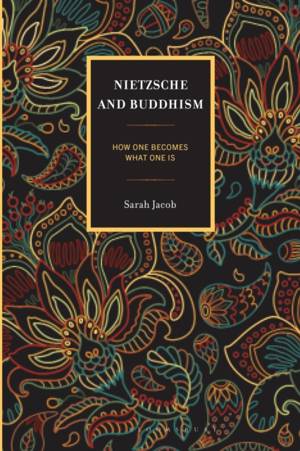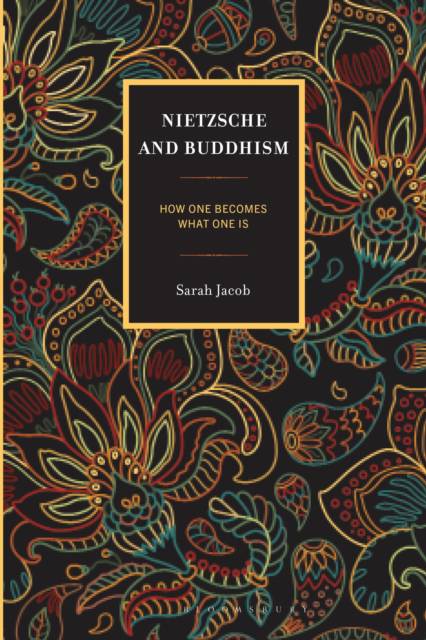
Bedankt voor het vertrouwen het afgelopen jaar! Om jou te bedanken bieden we GRATIS verzending (in België) aan op alles gedurende de hele maand januari.
- Afhalen na 1 uur in een winkel met voorraad
- In januari gratis thuislevering in België
- Ruim aanbod met 7 miljoen producten
Bedankt voor het vertrouwen het afgelopen jaar! Om jou te bedanken bieden we GRATIS verzending (in België) aan op alles gedurende de hele maand januari.
- Afhalen na 1 uur in een winkel met voorraad
- In januari gratis thuislevering in België
- Ruim aanbod met 7 miljoen producten
Zoeken
Omschrijving
The claim that Nietzsche was aware of Buddhist, Vedic, or Eastern thought more generally is uncontroversial.However, any stronger claims about the sphere of influence remain niche in Nietzsche studies. Any non-Western flavors in Nietzsche's writings are most often considered ornamental and wholly unnecessary in the quest to interpret what Nietzsche means. To the contrary, in Nietzsche and Buddhism: How One Becomes What One Is, Sarah Jacob argues that Nietzsche's work is further illuminated when seen as an endeavor that seriously engages with Buddhist ontology, and that Nietzsche's philosophy marks a paradigm shift in "Western" thought because of this encounter. Though the second half of this book offers a thorough comparative analysis between Nietzsche and Buddhism, its validity rests upon the often understated importance of Indian thought for German intellectuals prior to and during Nietzsche's life. Indeed, the author argues that Nietzsche's "philosophy of the future" should be recognized as a transcultural contribution to the history of ideas, one that has import for the perplexed global zeitgeist in the twenty-first century.
Specificaties
Betrokkenen
- Auteur(s):
- Uitgeverij:
Inhoud
- Aantal bladzijden:
- 272
- Taal:
- Engels
- Reeks:
Eigenschappen
- Productcode (EAN):
- 9781666973228
- Verschijningsdatum:
- 4/09/2025
- Uitvoering:
- Hardcover
- Formaat:
- Genaaid
- Afmetingen:
- 152 mm x 229 mm
- Gewicht:
- 526 g

Alleen bij Standaard Boekhandel
+ 390 punten op je klantenkaart van Standaard Boekhandel
Beoordelingen
We publiceren alleen reviews die voldoen aan de voorwaarden voor reviews. Bekijk onze voorwaarden voor reviews.









